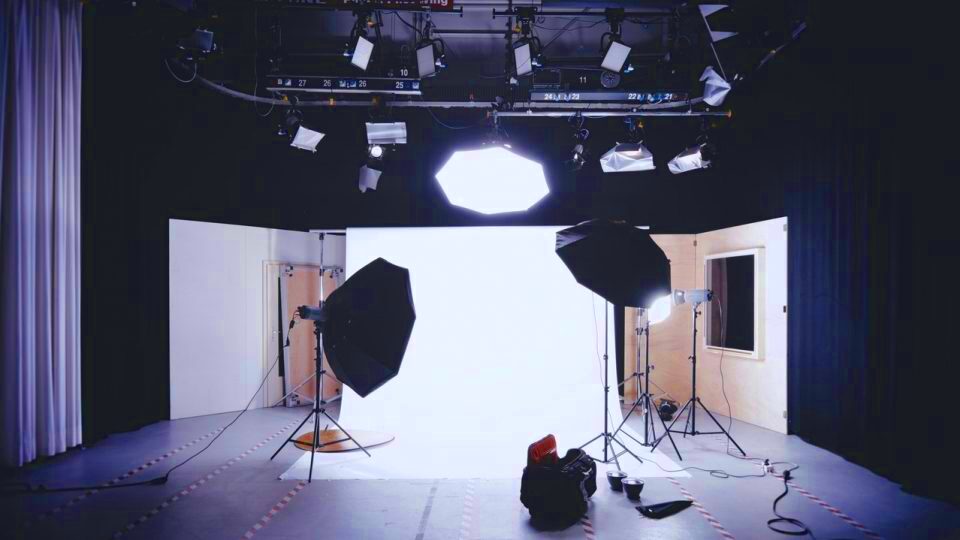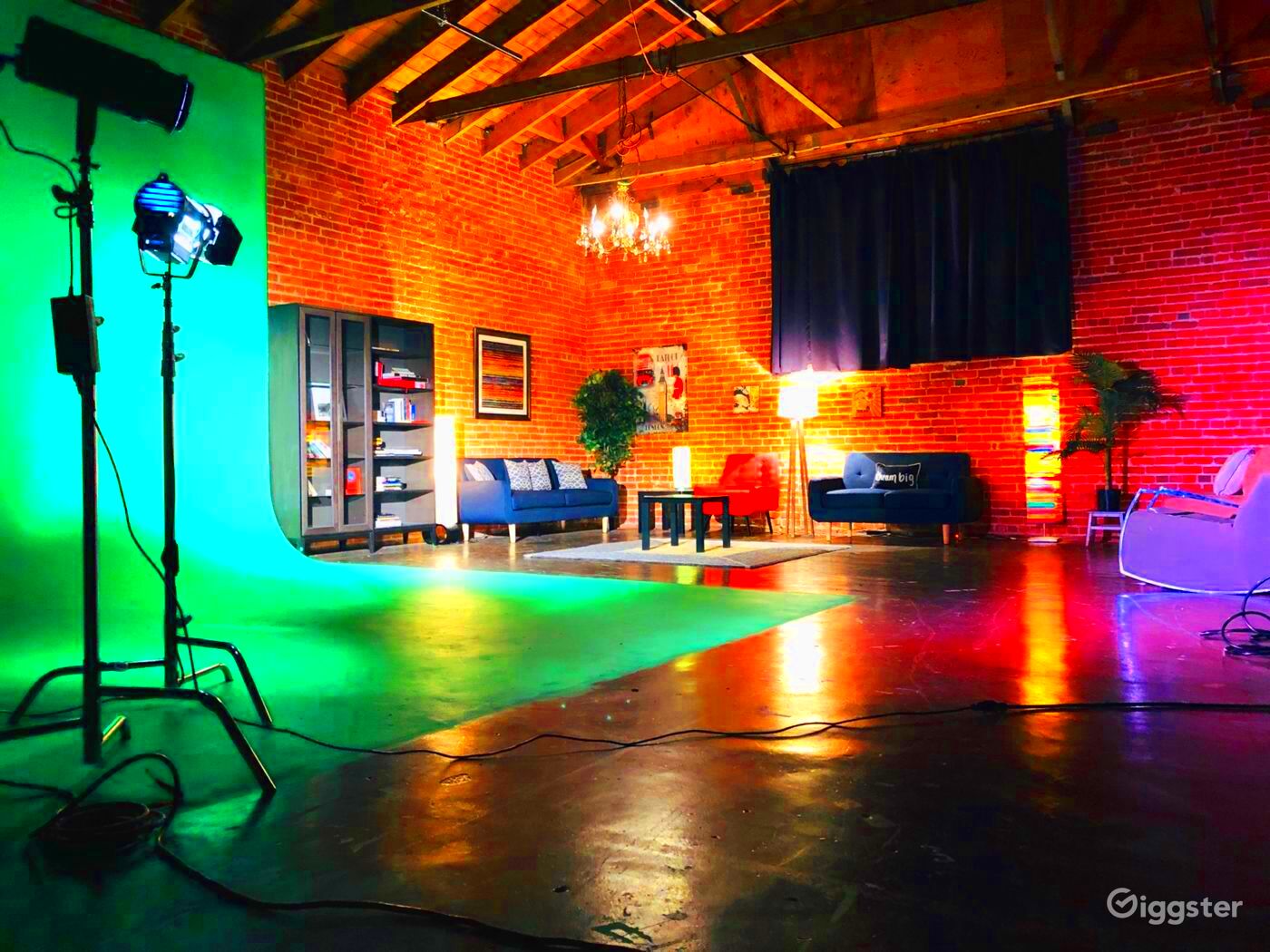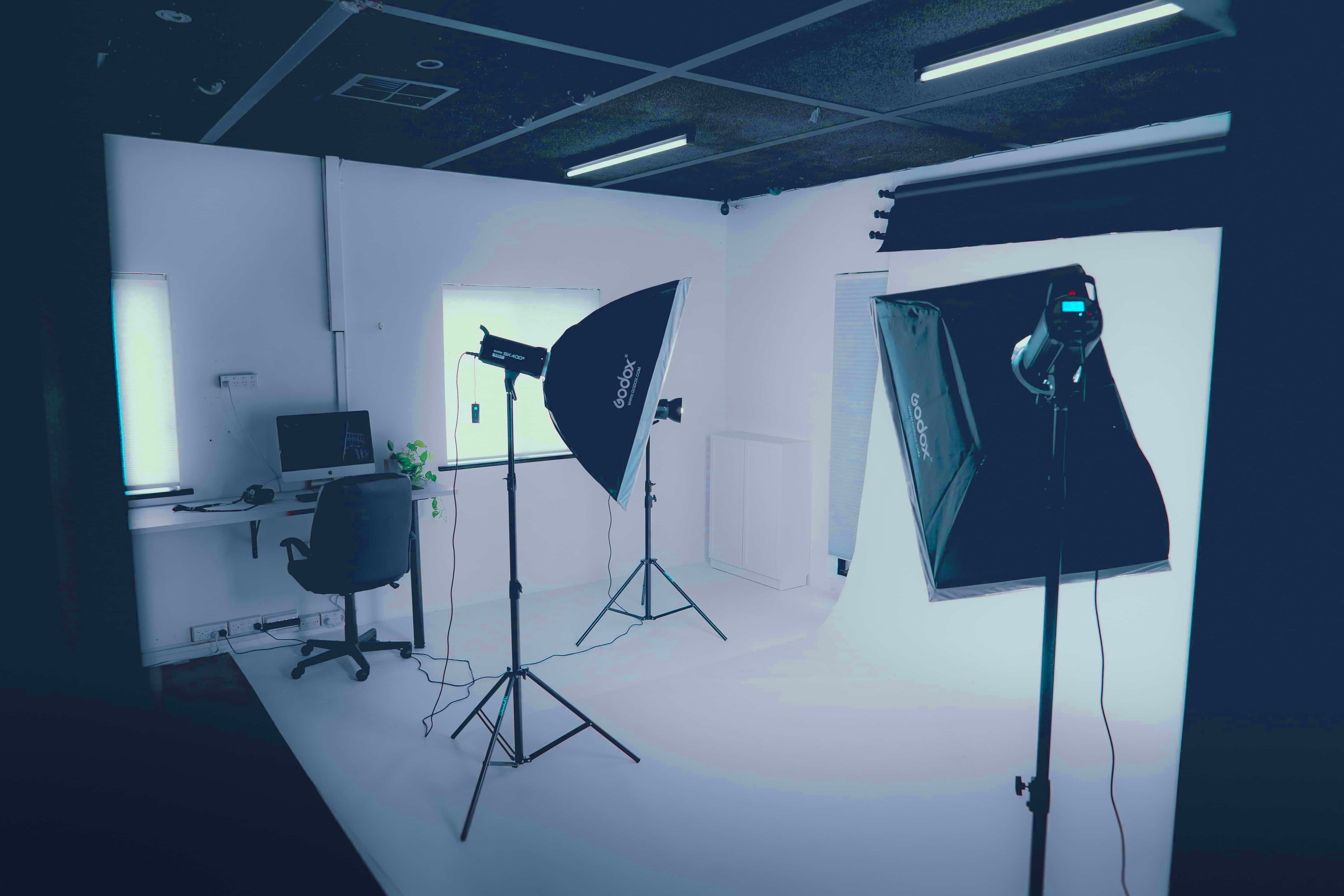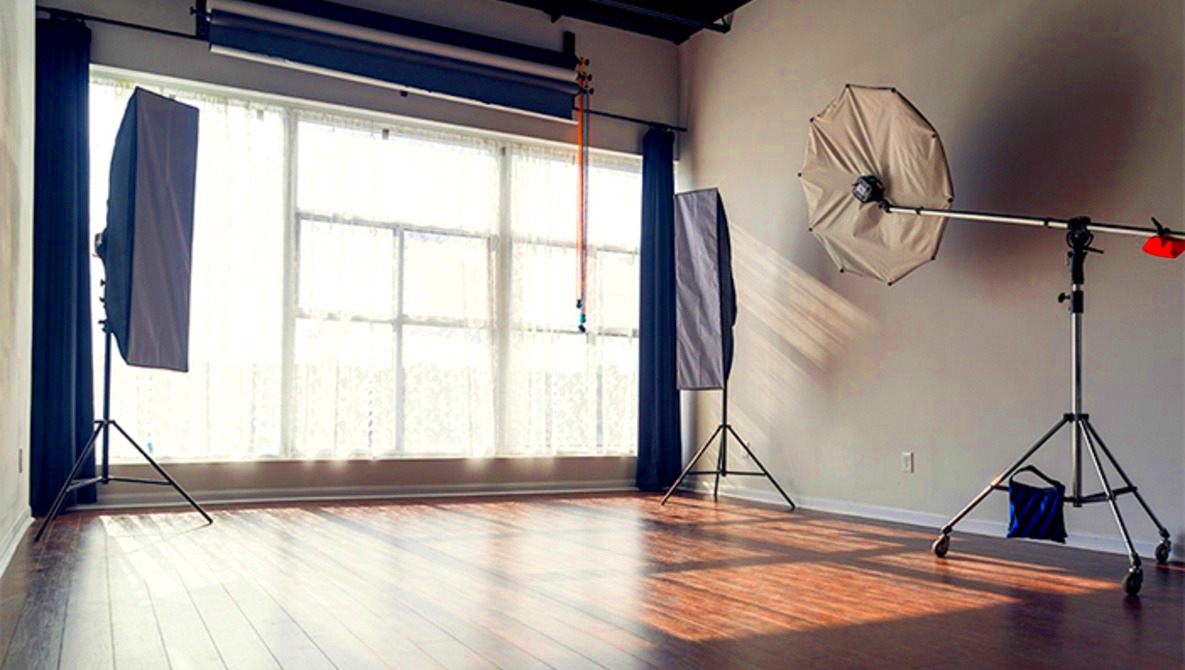When it comes to renting an image studio, costs can vary depending on several factors. Whether you are a photographer, videographer, or content creator, understanding the pricing structure can help you plan your project more effectively. Rental costs can be influenced by studio size, location, equipment, and the services offered. In this section, we will break down what to expect when it comes to rental rates, and how to make informed decisions based on your needs.
Factors Influencing Rental Rates for Image Studios

Several factors play a role in determining the rental cost of an image studio. The key elements include:
- Studio Location: Studios in major cities or popular areas typically have higher rental costs due to increased demand and premium locations.
- Size of the Studio: Larger studios with more space for equipment, people, and sets will cost more to rent.
- Included Equipment and Services: Studios that offer specialized equipment (e.g., lighting, backdrops, props) or additional services (e.g., styling, editing) will have higher rental fees.
- Rental Duration: Rates can vary based on how long you need the studio. Some studios may offer discounts for longer bookings.
- Studio Reputation: Established studios with a good track record of serving high-profile clients often have higher rental rates due to their reputation.
By considering these factors, you can get a clearer picture of what your studio rental might cost and how to make it fit within your budget.
Also Read This: Shutterstock vs iStock: Analyzing Features, Pricing, and Image Selection
Types of Studios and Their Rental Costs

Different types of image studios cater to various needs, and their rental costs can differ significantly based on their facilities and purpose. Below are some common types of studios:
- Basic Studio: These studios offer minimal equipment and are ideal for simple photo shoots or small projects. Prices can range from $30 to $100 per hour depending on location and equipment availability.
- Professional Studio: Equipped with advanced lighting, cameras, and backgrounds, these studios are perfect for commercial photo shoots or larger projects. Rental costs typically range from $150 to $500 per day.
- Specialized Studio: These studios may be designed for specific types of shoots, such as food photography, fashion, or video production. Due to the specialized equipment, they may cost upwards of $500 to $1,000 per day.
- Creative Studio: These are often open-plan spaces that can be customized with various props, backdrops, and furniture. Rental prices can range from $100 to $300 per day, depending on the location and features provided.
Knowing the type of studio you need will help you assess the rental costs more accurately and ensure that you choose a space that matches your project’s requirements.
Also Read This: Viewing Adobe Stock Photos in Illustrator
How Location Impacts Studio Rental Prices

The location of an image studio can have a huge impact on its rental cost. Studios located in major cities or high-demand areas tend to charge more due to the convenience and accessibility they offer. In contrast, studios in rural or less popular areas may be more affordable, though they could lack certain amenities or require more travel time. Understanding how location affects costs will help you make an informed decision and find a balance between affordability and convenience.
Here are a few ways location affects rental prices:
- Urban vs. Rural Areas: Studios in big cities like New York or Los Angeles are usually more expensive because of the high demand and prime location. Rural studios or those outside city centers can offer lower rates, but you might need to account for transportation costs and longer commute times.
- Proximity to Key Services: Studios near equipment rental shops, hotels, or public transportation may have higher rental costs due to the added convenience they offer to clients.
- Local Market Demand: In areas with a high demand for photo and video shoots, such as fashion hubs, studio prices are likely to be higher. In contrast, places with less demand may offer competitive pricing.
Choosing a studio based on its location should be a balance between budget and the ease of access to required services, so it's essential to consider the trade-offs before making a decision.
Also Read This: Downloading Sample Videos from iStock for Free
Additional Costs to Consider When Renting an Image Studio
When renting an image studio, it’s important to understand that the base rental price may not cover everything. There are several additional costs you might encounter, so budgeting properly is essential to avoid surprises. These extra costs can vary depending on the studio’s offerings and your specific needs.
Here are some common additional costs to be aware of:
- Equipment Rentals: Many studios offer high-end equipment like cameras, lighting, and props, but these often come with an extra fee. If the studio doesn’t provide equipment, you may need to rent it from a third party, which can add up.
- Studio Assistant or Technician Fees: If you require technical support during your shoot, the studio might charge for the use of assistants or technicians.
- Cleaning Fees: Some studios charge a cleaning fee, especially if your shoot involves messy materials or props. This is usually a one-time cost, but it’s good to check in advance.
- Insurance Costs: Depending on the value of your equipment and the type of shoot, the studio may require you to purchase insurance to cover any damages or accidents.
- Extra Time Charges: If you go over the booked time, studios often charge extra for the additional hours or half-days.
Understanding these potential costs upfront can help you avoid going over budget and make sure everything is accounted for when you plan your studio rental.
Also Read This: Alamy vs Shutterstock: Which Stock Photography Platform is the Best?
How to Find Affordable Image Studios
Finding an affordable image studio can seem challenging, but with some careful research and planning, you can secure a space that fits your budget without compromising quality. Here are a few strategies to help you find the best deals:
- Compare Multiple Studios: Don’t settle for the first studio you find. Research and compare prices from different studios in your area, and look for any ongoing promotions or discounts they may offer.
- Consider Off-Peak Times: Studios may offer discounted rates during off-peak times, such as weekdays or outside the busy season. Booking during these times can save you a significant amount of money.
- Look for Shared Spaces: Some studios offer shared spaces, where you share the studio with other creatives. These options are often more affordable and still provide access to high-quality equipment and facilities.
- Negotiate: If you have a tight budget, try negotiating with the studio for a lower rate. Some studios may be open to discussing pricing, especially if you’re booking for a longer term or multiple sessions.
- Check for Hidden Fees: Always inquire about any hidden fees, such as cleaning costs or equipment rentals, before finalizing your booking. This helps you avoid unexpected expenses later.
By following these tips and being proactive, you can find an affordable image studio that meets your needs and fits your budget.
Also Read This: How to View Public Profiles on Adobe Stock
Renting an Image Studio: Tips for Budgeting
Renting an image studio can be a significant expense, but with proper budgeting, you can make sure that it fits within your project’s financial plan. Whether you're a photographer working on a personal project or a content creator in need of a professional space, knowing how to manage your costs is essential. In this section, we’ll cover key tips to help you rent a studio without breaking the bank, so you can focus on your creativity without worrying about overspending.
Here are some helpful tips to stick to your budget when renting an image studio:
- Set a Clear Budget: Before you start looking for studios, decide how much you're willing to spend on the rental. This helps narrow down your options and prevents you from getting overwhelmed by choices outside your price range.
- Book for Shorter Durations: If you're working on a smaller project, consider booking the studio for a few hours or half-days instead of a full day. Many studios offer flexible pricing for shorter bookings.
- Choose Off-Peak Hours: Studios often have lower rates during off-peak hours, such as weekdays or early mornings. Booking at these times can save you money without compromising on space or equipment.
- DIY Setup: Instead of hiring extra assistants or technicians, try setting up your shoot on your own. This will help you save on additional costs associated with staffing.
- Look for Package Deals: Some studios offer package deals that include additional services like lighting equipment or props at a discounted rate. Bundling these services can be more cost-effective than renting them separately.
By following these tips, you can ensure your studio rental stays within budget while still meeting your needs. A little planning goes a long way!
Also Read This: Picture Perfection: Making Photobucket Pictures Not Blurry
Frequently Asked Questions About Studio Rental Costs
Renting an image studio can involve several factors, and many people have common questions about the costs associated with these rentals. To help you navigate the process, we've compiled some of the most frequently asked questions about studio rental fees, and provided answers to make your decision easier.
- What is the average cost of renting an image studio?
Studio rental costs vary depending on location, studio size, and additional services. On average, studio rentals range from $50 to $500 per day, but more specialized studios may cost more. - Are there any hidden fees?
Yes, additional fees like cleaning, equipment rentals, and staffing may apply. Always check the fine print and ask about any hidden charges before booking. - Can I rent a studio for just a few hours?
Most studios offer hourly rental options, especially for smaller projects. Hourly rates are typically more affordable, but check the minimum rental time requirements. - Is insurance required for renting a studio?
Some studios may require insurance, especially if you’re using valuable equipment or large props. It’s best to ask the studio about their insurance policy before booking. - How far in advance should I book a studio?
It’s recommended to book at least a few weeks in advance, especially if you're looking to rent during peak times. Early booking can also give you a better chance to secure your preferred time slot. - What equipment is typically included in the rental price?
Basic studios usually include standard equipment like backdrops and lighting. More advanced studios may offer specialized cameras, props, and editing tools, but these often come at an additional cost.
These FAQs should help clear up any confusion and give you a better understanding of what to expect when renting an image studio.
Conclusion: Making the Most of Your Image Studio Rental
Renting an image studio can provide you with a professional space to bring your creative vision to life. By understanding the factors that affect rental costs and planning ahead, you can ensure that your studio rental works within your budget and meets your project’s needs. From choosing the right location to factoring in additional costs, being prepared can help you avoid any surprises along the way.
Here are a few final tips to make the most of your rental experience:
- Prepare Ahead of Time: Plan your shoot carefully, so you're not wasting time during your rental period. Having a clear vision of what you need will help maximize your time in the studio.
- Inspect the Space: Before finalizing your booking, visit the studio or ask for photos to ensure it meets your needs in terms of size, equipment, and ambiance.
- Consider Future Rentals: If you plan on renting a studio for future projects, consider forming a long-term relationship with a studio that offers discounts or loyalty rewards for repeat customers.
By following these tips, you can ensure that your studio rental is a worthwhile investment that contributes to the success of your creative projects. Happy shooting!

 admin
admin








